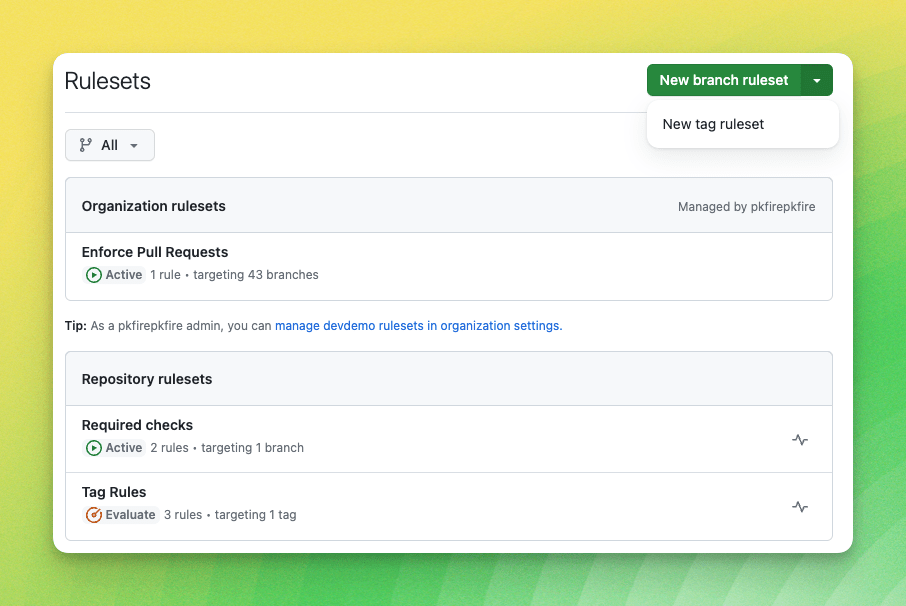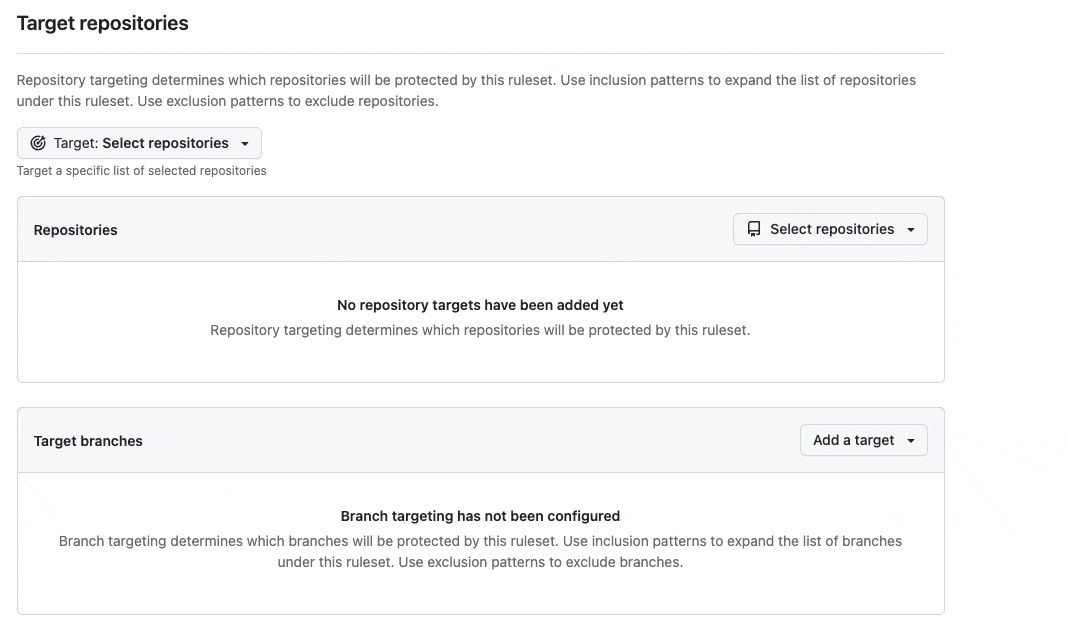Improvement
Repository Rules public beta updates
We are introducing a number of enhancements, bug fixes and a breaking API change to repository rules.

1. UI Updates
* Added a repository picker to target select repositories for organization rulesets.
* Improvements to rule violations in the WebUI and git client.

2. Ruleset Bypass updates
- Bypass can be limited to pull request exemptions only.
- Single UI for bypass, collapsing bypass mode, and bypass list into one experience.
- Support for using repository roles as a bypass type
- Integrations (bots/apps) are now bypassable at the org.

3. API Enhancements
- Add fields for created and updated date
- Permission changes so all repo contributors can query the API for relevant rules enforced on branches.
4. Bug fixes
- Linear merge history could block bypass
- Branches could not always be created when using commit metadata rules
- Tag protections were failing for apps
5. API Changes
GraphQL changes will be delayed by 24-72 hours.- Breaking Change Remove
bypass_modefrom the Ruleset object and input - Breaking Change Add
bypass_modeas a required field for bypass actors to indicate if an actor can “always” bypass a ruleset or can only bypass for a “pull_request” - Breaking Change for GraphQL Change
bypass_actor_idsto a new bypass_actors object on the create and update mutations that can accept repository roles and organization admins - Add
repository_role_database_id,repository_role_name, andorganization_adminfields toRepositoryRulesetBypassActorto indicate when the bypass actor is a role or org admin bypass - “get rules for a branch” REST API endpoint now returns ruleset source info for each rule.
- “get a repo ruleset” REST API endpoint now has a
current_user_can_bypassfield that indicates whether the user making the request can bypass the ruleset. sourcefield for rulesets returned via the REST API will now properly contain the repo inowner/namesyntax when the ruleset is configured on a repository, rather than just the repository’s name.
We want to hear from you on how we can improve repository rules! Join the conversation in the repository rules public beta discussion.
